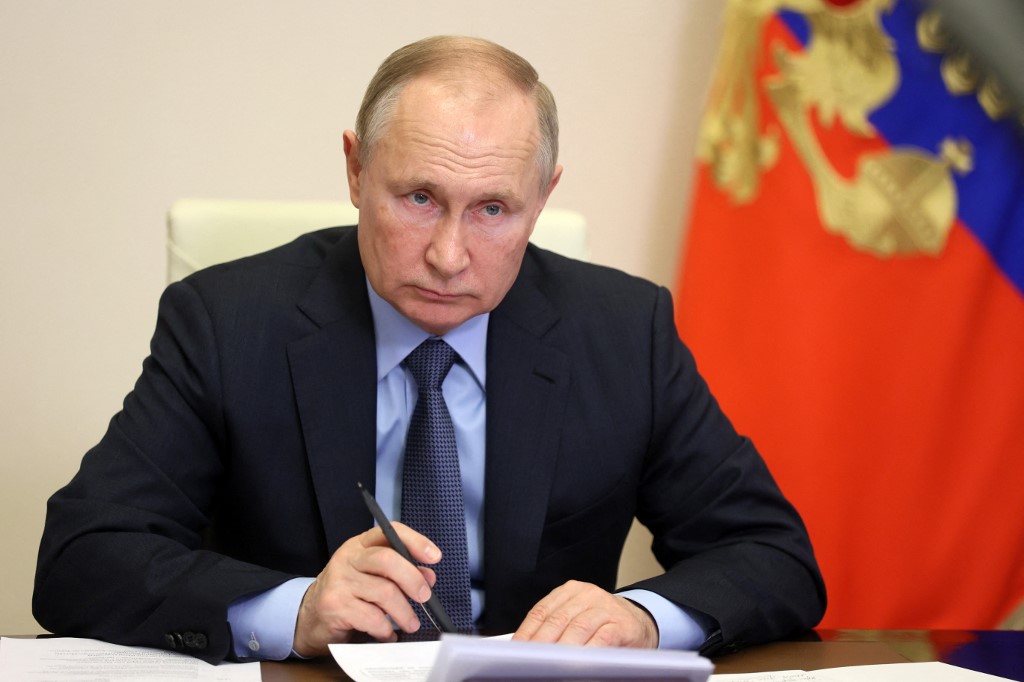Stephen S. Roach, a Yale faculty member, recently published an article in Project Syndicate, entitled “How China Can End the War in Ukraine.” Building on his previous piece, “Only China Can Stop Russia,” Roach further proposes what China can do to restore peace.
Roach hopes that China, “a deeply principled nation,” will play an “honest broker role” in bringing the war to an end by calling for an emergency G20 meeting, providing humanitarian aid to Ukraine, and supporting Ukraine’s post-war reconstruction.
China’s “goal of global leadership,” he claims, can be achieved at the same time. The author’s desire for peace is noble, but the hope that he places on a regime that ignores objective reality and disregards basic moral values is delusional at best.
China’s Position
Firstly, the Chinese government could never be an “honest broker” because its position is neither neutral nor honest, as demonstrated by its behavior before and after the invasion.
From the CCP’s declaration of unlimited strategic cooperation with Russia on the eve of the war and the signing of 15 cooperation agreements, to the announcement on the day of the invasion that China will allow Russian wheat imports, to China’s post-invasion statement that it understands Russia’s “legitimate” security concerns and does not view the conflict as an “invasion,” China’s strong support for Russia is patently obvious.
Although China’s ambassador to the US expressed China’s concern about Ukraine’s “sovereignty and territorial integrity” in a letter to The Washington Post, the Chinese judge (acting on the will of the CCP regime) still joined the Russian judge in casting the only dissenting votes in the UN International Court of Justice’s March 16 ruling that Russia “shall immediately suspend military operations” in Ukraine.
Moreover, The New York Times cited a Western intelligence report that the CCP was aware of dictator Vladimir Putin’s plans to invade Ukraine, but merely asked Moscow not to launch the war before the end of the Beijing Winter Olympics.


Although the Chinese government denies this, it can easily be inferred from this chain of coincidences that the CCP was a supporter of (and perhaps even complicit in) Putin’s invasion. Given this, how could China possibly be qualified to play a leading role in mediating the war?
Misunderstanding
Another premise of Roach’s article is that China is a “deeply principled” state that respects national sovereignty and territorial integrity, and regards non-interference in the internal affairs of other nation-states as a “sacrosanct” principle.
This is clearly a misunderstanding on the part of Roach, if not an intentional misrepresentation.
Following the bankruptcy of communist ideology after the Tiananmen Square Massacre, successive generations of CCP leaders have attempted to devise or revive various hollow ideological theories to prop up China’s authoritarian regime and to brainwash and control the Chinese people.
For instance, the principle of “one country, two systems,” as set forth in the Basic Law of Hong Kong, was a guiding principle proposed by Deng Xiaoping. But barely two decades after Hong Kong’s repatriation to China, the CCP has abandoned the notion of “Hong Kong people administering Hong Kong,” instead arguing that Hong Kong should be governed by “Hong Kong patriots.”
In the words of CCP officials, “two systems” now refers to separate economic systems, rather than distinct political systems; and the 50-year period enshrined in the Basic Law is simply a philosophical paradigm rather than a rigid requirement.
This re-sculping of principles was also evident when Xi Jinping wantonly amended China’s constitution to remove term limits, essentially enabling him to rule for life.
As for China’s claim that it respects “national sovereignty and territorial integrity,” this was an utter lie used by the CCP to ward off international criticism while oppressing ethnic minorities in Xinjiang and Tibet and coveting Taiwan.
Russia’s annexation of Crimea in 2014 was largely condemned by the international community, but in the aftermath, China abstained from voting on a UN resolution to condemn Moscow, just as it did after Russia’s invasion of Ukraine in 2022.
‘Democracy’
The CPP is also notoriously adept at selectively altering the meaning of words. For example, Xi Jinping proudly claims that China has achieved “full-process people’s democracy,” even though Chinese civilians have never touched the ballot box.
In China, the term “democracy” is vague and ambiguous at best. Similarly, in the case of Russia’s invasion of Ukraine, China has stood on the sidelines on the grounds of “non-interference” in the internal affairs of other countries.
The CCP has expressed concern for Ukraine’s sovereignty and territorial integrity on the one hand, and for Russia’s security on the other. This feigned position of neutrality is laughable.
In his article, Roach proposes that China should donate $50 billion to UNICEF in support of Ukrainian refugees and their children, and $3.5 billion in post-conflict aid to Ukraine. These seemingly noble proposals ignore the nature of an authoritarian regime like China: every dollar that the CCP spends comes from the blood and sweat of the Chinese people, but does not require their permission.
Roach, it appears, is seeking to bolster the international reputation of China’s tyrannical regime. This is irresponsible and morally indefensible.
Roach has high expectations for the Chinese government, arguing that if his proposed plan is implemented, it will usher in “China’s Marshall Plan moment” and achieve China’s “long-sought goal of a responsible global leadership.”
However, this would play directly into Xi’s hands, as he is in desperate need of some sort of notable achievement (perceived or real) to bolster the legitimacy of his appointment to a third term, and in line with the political ambitions he has demonstrated since coming to power.
But chillingly, as the author suggests, this unjust war, orchestrated by Putin, will incite another, even larger dictator — Xi Jinping — to pursue his own ambition of invading and annexing Taiwan.
Roach’s proposals, if carried out, will place the fragile state of world peace in even greater peril.
Co-author Yan Yu (pseudonym) is a public intellectual in China.

